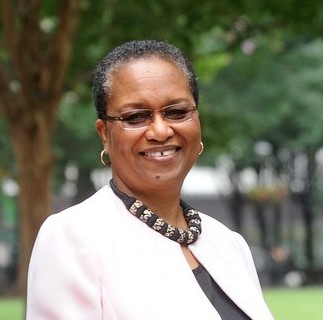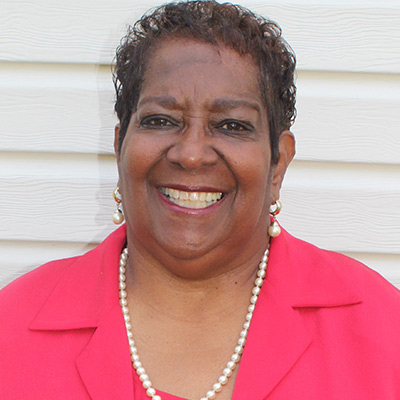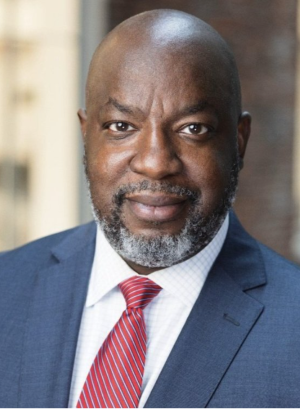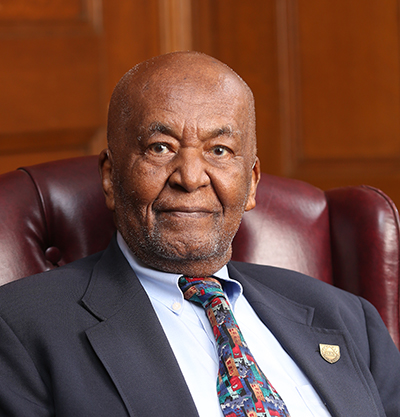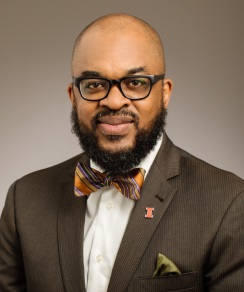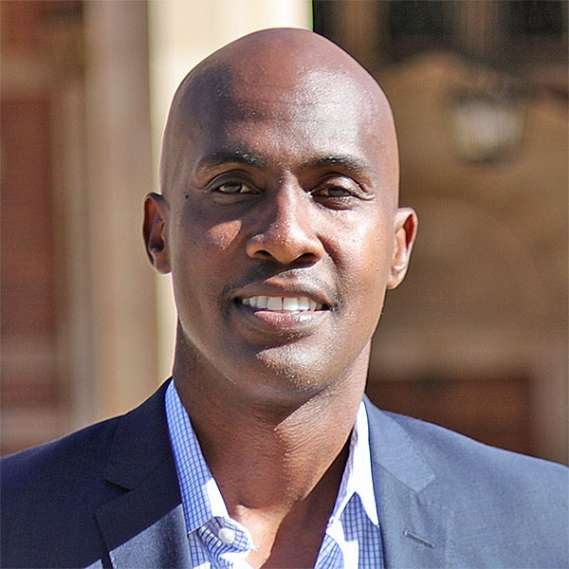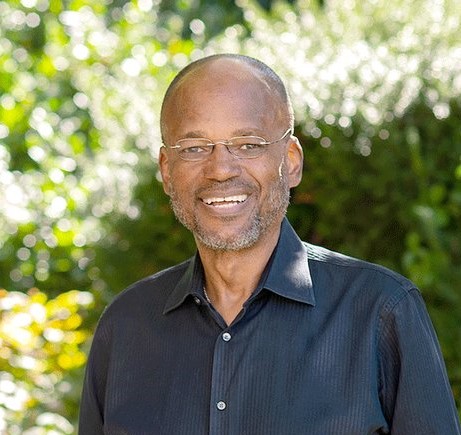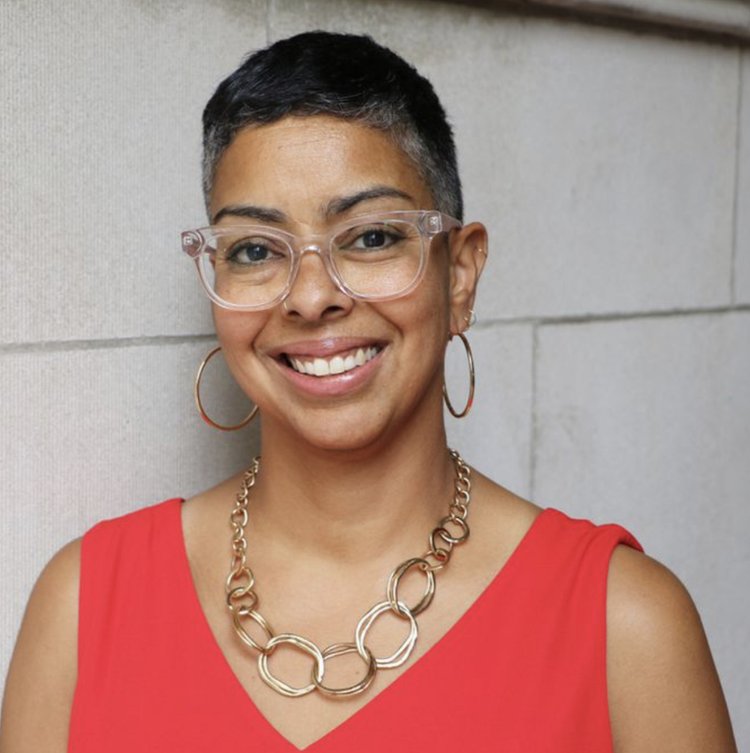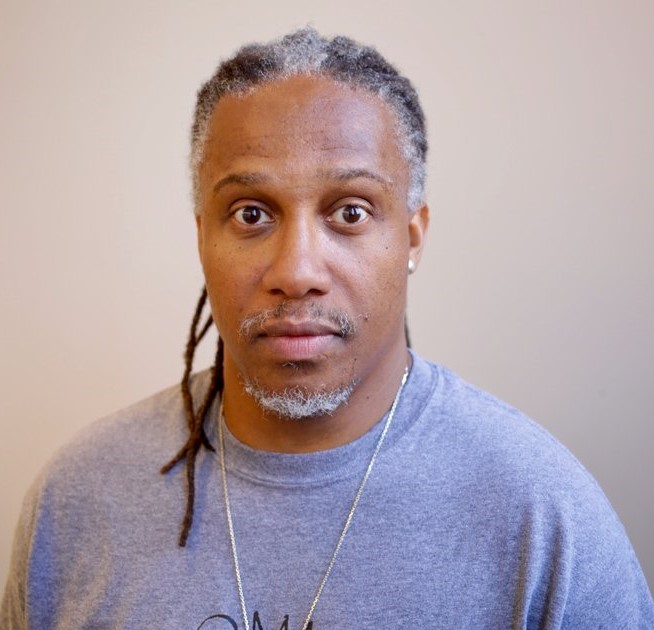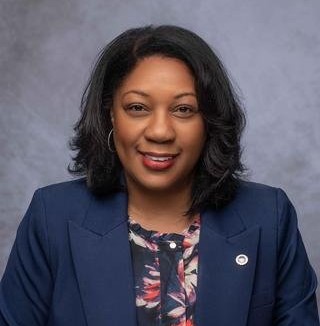Vision
We advance an emancipatory vision of education grounded in our values and based on the following tenets: (1) education is a civil and human right, (2) education is a social, cultural, and political process, (3) education is a calling and valued profession, (4) education is a collective responsibility, and (5) education is the practice of freedom.
Mission
Our mission is to generate new knowledge at the intersections of Black studies, culture, politics, and education to improve the quality of Black educational opportunities and outcomes in the U.S. and throughout the world.
Values
We value research and scholarship grounded in Black, African-centered, and indigenous knowledge and ways of knowing; education research, policy, and practice communities will be better equipped to tackle the complex challenges associated with race and social inequality in America’s schools.
Meet our Staff
Meet our Advisory Board
Since 2004, Dr. Joyce E. King has served as the Benjamin E. Mays Endowed Chair for Urban Teaching, Learning and Leadership and Professor of Educational Policy Studies in the College of Education & Human Development at Georgia State University.
Previously, Dr. King held senior academic affairs positions as Provost at Spelman College, Associate Provost at Medgar Evers College, CUNY and Associate Vice Chancellor for Academic Affairs and Diversity Programs at the University of New Orleans. She was the director of teacher education for twelve years at Santa Clara University and the first head of the Ethnic Studies Department at Mills College. She completed two prestigious leadership programs: the American Council on Education Fellowship at Stanford University with the President, the Vice President for Planning and Management, and the Office for Multicultural Development. As a W.K. Kellogg National Fellowship recipient, King also studied women’s leadership and grassroots participation in social change in China, Brazil, France, Kenya, Japan, Mali and Peru.
Widely respected in the fields of urban education and the sociology of education, King’s research has contributed to the knowledge-base on preparing teachers for diversity and curriculum theorizing through her scholarship, teaching practice and leadership. She served on the Curriculum Commission of the State Board of Education.
Recent publications include the Harvard Educational Review, The Handbook of Research on Black Education, The Handbook of Research on Teacher Education and Voices of Historical and Contemporary Black Pioneers. In addition, King organized and edited a landmark book, Black Education: A Transformative Research and Action Agenda for the New Century that was published for the American Educational Research Association (2005).
She has served as co-editor of the top-ranked Review of Educational Research, and her concept of “dysconscious racism” continues to influence research and practice in education and sociology as well in the U.S. and in other countries. A forthcoming book produced in collaboration with teacher educators and classroom teachers is: “Re-membering” History in Student and Teacher Learning: An Afrocentric and Culturally Informed Praxis.
King has lectured in educational and community organizations in the United States, Brazil, Canada, England, Mali, Senegal, Japan, Jamaica and New Zealand. She has shared her expertise in diversity transformation as a training consultant with civic and human rights organizations and higher education institutions in the U.S. and abroad. She is also President of the Board of Directors of Food First (Institute for Food and Development Policy, Oakland, California).
A dynamic leader and visionary teacher/scholar, King has a wealth of academic, administrative and leadership experience in public, private and non-profit settings, including historical Black and predominately white colleges and universities. She has created numerous opportunities for emergent leaders of diverse backgrounds to progress in their careers. Her accomplishments reflect an emphasis on innovative interdisciplinary scholarship, culturally connected teaching and learning and inclusive transformative leadership for change often in creative partnership with communities.
Dr. King served as the 2015 President of the American Educational Research Association.
Dr. Linda C. Tillman is Professor Emerita of Educational Leadership in the School of Education at the University of North Carolina-Chapel Hill, and is currently a Distinguished Visiting Professor at Loyola Marymount University in Los Angeles, CA. Dr. Tillman is a former public-school educator with high school teaching and administrative experience. Dr. Tillman’s research and scholarship is focused on school leadership, the education of African Americans in K-12, mentoring in higher education, and culturally sensitive research approaches. Dr. Tillman serves on the advisory boards of TheHistoryMakers and the Black Education Research Collective at Teachers College-Columbia University.
Dr. Tillman was also the recent recipient of the inaugural Linda C. Tillman Social & Racial Justice Award named in her honor.
M. C. Brown II serves as Executive Director of the Dr. N. Payne Center for Social Justice at the Thurgood Marshall College Fund. The Payne Center for Social Justice is devoted to independent research that leads to pragmatic and innovative ideas regarding the intractable problem of social justice facing society by conducting and commissioning policy studies and research from and about historically Black colleges and universities.
Regarded as an international scholar in the areas of education policy, governance/administration, and institutional contexts, Dr. Brown has lectured and/or presented over 400 keynotes and research papers in various countries on six of seven continents. He is the Founder of the Atwood Institute on Race, Education, and the Democratic Ideal and the former Executive Director and Chief Research Scientist of the Frederick D. Patterson Research Institute of the United Negro College Fund. Dr. Brown’s research has been funded by the Lumina Foundation, Spencer Foundation, AT&T Foundation, the Pew Charitable Trusts, the Sallie Mae Fund, as well as other foundations and corporations.
He is the author/editor of 20 books and monographs, including two editions of the bestselling textbook, Organization and Governance in Higher Education – and over 100 journal articles, book chapters, and publications related to education and society. A two-time recipient of the Philip C. Chinn Book Award from the National Association for Multicultural Education, Dr. Brown also received the Association for the Study of Higher Education’s Promising Scholar/Early Career Award and the AERA Committee on Scholars of Color Early Career Contribution Award.
Dr. Brown held full-time faculty appointments at the University of Missouri-Kansas City, the University of Illinois at Urbana-Champaign, and The Pennsylvania State University and senior academic administrative roles at the University of Nevada-Las Vegas, Fisk University, and the Southern University and A & M College System. He served as president of both Alcorn State and Kentucky State Universities – both 1890 land-grant institutions. In the nonprofit sector, Dr. Brown also held executive appointments at the American Educational Research Association and the American Association of Colleges for Teacher Education.
Dr. Brown received the Bachelor of Science in elementary education from South Carolina State University, the Master of Science in educational policy and evaluation from the University of Kentucky, and a Doctor of Philosophy in higher education from The Pennsylvania State University with a cognate in public administration and political science.
Edmund Gordon is the John M. Musser Professor of Psychology, Emeritus at Yale University, Richard March Hoe Professor, Emeritus of Psychology and Education and Founding Director of the Institute of Urban and Minority Education (IUME) at Teachers College, Columbia University. From July 2000 until August 2001 Gordon was Vice President of Academic Affairs and Interim Dean at Teachers College, Columbia University.
Professor Gordon’s distinguished career spans professional practice, scholarly life as a minister, clinical and counseling psychologist, research scientist, author, editor, and professor. He held appointments at several of the nation’s leading universities including Howard, Yeshiva, Columbia, City University of New York, Yale, and the Educational Testing Service. He has served as visiting professor at City College of New York and Harvard. Currently, Professor Gordon is the Senior Scholar and Advisor to the President of the College Board where he developed and co-chaired the Taskforce on Minority High Achievement.
Author and/or editor of over 15 books and over 175 articles Gordon is a psychologist and expert in child development who has worked throughout his career on the issues and challenges of underprivileged and minority students in American education. As a clinician and researcher, he explored divergent learning styles and advocated for supplemental education long before most scholars had recognized the existence and importance of those ideas.
He was Chief of the Head Start Research Office under President Lyndon Johnson and from 2011 to 2013 he organized and mentored the (ETS) Gordon Commission, bringing together scholars to research and report on the Future of Assessment for Education. His most recent publication, Human Variance and Assessment for Learning, co-edited with Eleanor Armour-Thomas, Cynthia McCallister, and A. Wade Boykin (October 2019, Third World Press), is a further development of ideas generated from the Gordon Commission.
Rodney Hopson, PhD is an accomplished scholar, academic leader and thought partner who serves as Acting Co-Dean and Professor, School of Education. Most recently, Hopson served as Professor of Evaluation in the Department of Educational Psychology, College of Education, with appointments in the Department of Educational Policy and Organizational Leadership and the Center of African Studies at the University of Illinois-Urbana Champaign. As part of the inaugural University of Illinois System Distinguished Faculty Recruitment Program, Hopson served as catalyst in re-envisioning the Evaluation unit in the department, developing externally funded partnerships with and for PhD students, and leading assistant professor development efforts.
Hopson received his doctorate from the Curry School of Education, University of Virginia, with major concentrations in educational evaluation, anthropology, and policy, and sociolinguistics. He was awarded a National Institute on Drug Abuse (NIH) postdoctoral fellowship at the Bloomberg School of Public Health, Johns Hopkins University. Hopson is an American Educational Research Association (AERA) Fellow, and has affiliated previously in the Faculty of Education, University of Namibia as a JW Fulbright Scholar and the Centre of African Studies, Cambridge University (UK). Currently he is affiliated with the School of Health, Victoria University-Wellington (Aotearoa New Zealand), is Editor of the Studies in Educational Ethnography Book Series, Emerald Publishers, and Co-Editor of Educational Policy as/in Practice: Critical Cultural Studies, Information Age Book Series.
Central to Hopson’s research agenda over the last 25 years are questions that: 1) analyze and address the differential impact of education and schooling on marginalized and underrepresented groups in diverse global nation states; and 2) seek solutions to social and educational conditions in the form of alternative paradigms, epistemologies, and methods for the way the oppressed and marginalized succeed and thrive despite circumstances and opportunities that suggest otherwise. He has co-authored and co-edited 10 books, including Culturally responsive inquiry in education: Improving research, evaluation, and assessment (Harvard Education Press, 2022), Tackling wicked problems in complex ecologies: The role of evaluation (Stanford University Press, 2018), New directions in educational ethnography: Shifts, problems, reconstruction (Emerald, 2016), Power, voice, and the public good: Schooling and education in global societies (Elsevier, 2008), and others.
Hopson’s cumulative work is driven by quests to: a) understand the role of language as a harbinger of social and educational change, especially in post-apartheid and postcolonial nation states that wrestle with the tensions and opportunities of democracy and freedom; and b), emphasize the transformative possibility of developing mechanisms that promote educational and social equity through the development of communities of practice in interdisciplinary and transdisciplinary ways to broaden participation, inclusion, and diversity for those often forgotten and underserved in schools, community, social systems, and the larger society. His work has been funded by philanthropic and governmental agencies such as the National Science Foundation, the Robert Wood Johnson Foundation, Ford Foundation, W.K. Kellogg Foundation and other local and international funders. Most notably, he is the founding Program Director of the American Evaluation Association (AEA) Graduate Education Diversity Internship (GEDI) Program, a program in its 20th year that supports graduate students of color from traditionally underrepresented communities to embed culturally responsive evaluation approaches and practices in their yearlong training, current academic studies, and future career.
Tyrone Howard is a professor of education in the School of Education & Information Studies at UCLA. His research addresses issues tied to race, culture, access and educational opportunity for minoritized student populations. Professor Howard is the author of several best-selling books, including "Why Race & Culture Matters in Schools" (Teachers College Press) and "All Students Must Thrive" (Houghton Mifflin Harcourt). He is a native of Compton, California, where he also served as a classroom teacher. Professor Howard is a member of the National Academy of Education and is an AERA Fellow.
I have taught and been an administrator on every level from pre-school through professional school. I have written more than 50 books, articles and book chapters on urban education and aspects of black education.
An educator for over twenty years, Dr. Rivera-McCutchen began her career as a high school teacher in the Bronx, before earning her doctorate in Teaching and Learning at New York University. She is a first-generation college graduate, and her research, teaching and activism are informed by her experiences as an educator and student in NYC public schools. Dr. Rivera-McCutchen’s scholarship focuses on urban school leaders who practice “radical care,” centering anti-racism and equity as part of their leadership work. Her research has appeared in Educational Administration Quarterly, Teachers College Record, Urban Education, the Journal of Cases in Educational Leadership and other peer reviewed journals. Most importantly, she is the mother of three Afro-Latinx children who attend public schools in Westchester, NY.
David Stovall, Ph.D. is a professor in the departments of Black Studies and Criminology, Law & Justice at the University of Illinois at Chicago (UIC). His scholarship investigates three areas 1) Critical Race Theory, 2) the relationship between housing and education, and 3) the intersection of race, place and school. In the attempt to bring theory to action, he works with community organizations and schools to address issues of equity, justice and abolishing the school/prison nexus. His work led him to become a member of the design team for the Greater Lawndale/Little Village School for Social Justice (SOJO), which opened in the Fall of 2005. Furthering his work with communities, students, and teachers, his work manifests itself in his involvement with the Peoples Education Movement, a collection of classroom teachers, community members, students and university professors in Chicago, Los Angeles and the San Francisco Bay Area who engage in collaborative community projects centered in creating relevant curriculum. In addition to his duties and responsibilities as a professor at UIC, he also served as a volunteer social studies teacher at the Greater Lawndale/Little Village School for Social Justice from 2005-2018.
Dawn Williams proudly serves as the Dean of the Howard University School of Education. Underlying all her work are premises that include the indoctrination of social justice through teaching, research, service, and professional development. With over two decades in the field, she has managed complex organizations; worked effectively with local, national, and international colleagues; secured and managed resources to support the institution’s strategic direction and vision; and built relationships with alumni, donors, school districts, and international academic communities.
Dr. Williams is author and co-author of approximately 30 articles and book chapters that focus on leadership, governance, and macro-educational policies targeted for urban school reform. From her leadership and research record, she has appeared on BET, CNN, and ABC networks. Over the past decade, she has been a recipient of several grants totaling approximately $3.3 million funded by the National Science Foundation. Her research in the STEM and educational policy arena is focused on issues of access and diversity while promoting a conscious social justice agenda.
Dr. Williams earned a Ph.D. and M.A. in Educational Policy Studies with dual residency in Educational Organization and Leadership from the University of Illinois at Urbana Champaign. She holds a Bachelor of Science degree in Elementary Education from North Carolina Agricultural and Technical State University.
